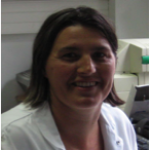Link to Pubmed [PMID] – 32769989
Link to DOI – 10.1038/s41598-020-70056-4
Sci Rep 2020 Aug; 10(1): 13315
Using human induced pluripotent stem cells (iPSC), recent studies have shown that the events underlying autism spectrum disorders (ASD) can occur during neonatal development. We previously analyzed the iPSC-derived pyramidal cortical neurons of a subset of patients with ASD carrying de novo heterozygous mutations in postsynaptic SHANK3 protein, in culture. We reported altered spinogenesis of those neurons. The transplantation of human iPSC-derived neuronal precursors into mouse brain represents a novel option for in vivo analysis of mutations affecting the human brain. In this study, we transplanted the neuronal precursor cells (NPC) into the cortex of newborn mice to analyze their integration and maturation at early stages of development and studied axonal projections of transplanted human neurons into adult mouse brain. We then co-transplanted NPC from a control individual and from a patient carrying a de novo heterozygous SHANK3 mutation. We observed a reduction in cell soma size of selective neuronal categories and in axonal projections at 30 days post-transplantation. In contrast to previous in vitro studies, we did not observe any alteration in spinogenesis at this early age. The humanized chimeric mouse models offer the means to analyze ASD-associated mutations further and provide the opportunity to visualize phenotypes in vivo.






